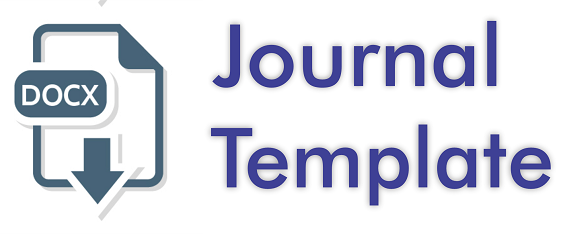Non Performing Financing dan Strategi Penanganannya pada Akad Murabahah di KSPPS Risalatuna Berkah Sejahtera
DOI:
https://doi.org/10.59107/ri.v4i1.87Keywords:
Non Performing Financing, Murabahah, KSPPSAbstract
Problematic financing is referred to as Non-Performing Financing (NPF), which includes financing with delinquent collectability and financing with doubtful collectability that has the potential to become delinquent. This study aims to examine the factors causing Non-Performing Financing and the handling strategies for Murabaha contracts at KSPPS Risalatuna Berkah Sejahtera. To achieve the objectives of this research, the author employs a descriptive qualitative research method. The data collection techniques used are documentation studies and in-depth interviews. In terms of problematic financing, KSPPS Risalatuna Berkah Sejahtera has been ineffective due to factors such as the lockdown during the COVID-19 pandemic and natural disasters, which resulted in an uncertain income for the customers. The strategies for handling Non-Performing Financing implemented by KSPPS Risalatuna Berkah Sejahtera include reducing installments, meaning providing long-term settlement time, and lowering profits by using collateral. KSPPS Risalatuna Berkah Sejahtera also seeks to resolve problematic financing through social funds and penalty funds from other customers; however, this is often not done in a timely manner.
Downloads
References
Ali, B. J., & Anwar, G. (2021). An empirical study of employees’ motivation and its influence job satisfaction. Ali, BJ, & Anwar, G.(2021). An Empirical Study of Employees’ Motivation and Its Influence Job Satisfaction. International Journal of Engineering, Business and Management, 5(2), 21–30.
Andreas, D. (2022). Employee performance: The effect of motivation and job satisfaction. PRODUKTIF: Jurnal Kepegawaian Dan Organisasi, 1(1), 28–35.
Arifin, A. H., & Matriadi, F. (2022). The role of job satisfaction in relationship to organizationculture and organization commitment on employee performance. United International Journal for Research & Technology, 3(6), 117–129.
Bormasa, M. F., & Sos, S. (2022). Kepemimpinan Dan Efektivitas Kerja. CV Pena Persada.
Darmawan, D. (2022). Budaya Organisasi, Kepemimpinan Dan Komitmen: Determinan Efektivitas Organisasi Yang Akurat. TIN: Terapan Informatika Nusantara, 3(7), 260–266.
Emmanuel, O. (2017). Understanding Organisational culture and Organisational performance: are they two sides of the same coin? J Manage Res, 9(1), 12–21.
Fauzi, K. A., & Purbasari, R. (2024). Peran Budaya Organisasi Dalam Manajemen Konflik Pada Tempat Kerja Di Era Digital. Jurnal Bisnis Dan Manajemen (Jbm), 60–68.
Galli, B. J. (2021). Effective Strategies for Communicating and Managing Communication in a Project Team: My Perspective. International Journal of Applied Industrial Engineering, 8(1).Hamkar, N. A., Bashar, H., & Hikmat, H. (2024). Effective Communication as a Tool for Achieving Organizational Goal and Objective. Journal for Research in Applied Sciences and Biotechnology, 3(3), 242–248. https://doi.org/10.55544/jrasb.3.3.37
Iswahyudi, M. S., Munizu, M., Muktamar, A., Badruddin, S., Suryani, L., Kustanti, R., Dewi, L. P., Januaripin, M., Dewi, A. R., & Munawar, A. (2023). Kepemimpinan Organisasi: Teori Dan Praktik. PT. Green Pustaka Indonesia.
Julianto, B., & Carnarez, T. Y. A. (2021). Faktor-Faktor Yang Mempengaruhi Organisasi Professional: Kepemimpinan, Komunikasi Efektif, Kinerja, Dan Efektivitas Organisasi (Suatu Kajian Studi Literature Review Ilmu Manajemen Terapan). Jurnal Ilmu Manajemen Terapan, 2(5), 676–691.
Kitsios, F., & Kamariotou, M. (2021). Job satisfaction behind motivation: An empirical study in public health workers. Heliyon, 7(4), e06857.
Lubis, F. R., & Hanum, F. (2020). Organizational culture. 2nd Yogyakarta International Conference on Educational Management/Administration and Pedagogy (YICEMAP 2019), 88–91.
Mangindaan, B., Tewal, B., & Dotulong, L. O. H. (2020). Pengaruh Budaya Organisasi, Komitmen Organisasi, Dan Kompetensi Terhadap Organizational Citizenship Behavior Pada Hotel Sutan Raja Amurang. Jurnal EMBA: Jurnal Riset Ekonomi, Manajemen, Bisnis Dan Akuntansi, 8(1).
Pamungkas, W. S., & Yulianti, E. (2024). Analysis of Employee Communication Ethics on The Performance of The Personnel Bureau of The General Secretary of The Ministry of Defense
of The Republic of Indonesia. LAW&PASS: International Journal of Law, Public Administration and Social Studies, 1(2), 168–184.
Paramita, E., Lumbanraja, P., & Absah, Y. (2020). The influence of organizational culture and organizational commitment on employee performance and job satisfaction as a moderating variable at PT. Bank Mandiri (Persero), Tbk. International Journal of Research and Review, 7(3), 273–286.Pramanik, N. D. (2020). Pengaruh komunikasi organisasi dan motivasi terhadap kinerja freelance di Jagoketik. com. Jurnal Akuntansi, Keuangan, Dan Manajemen, 1(3), 213–226.
Putri, G. A. M., Fauzi, A., Saputra, F., Danaya, B. P., & Puspitasari, D. (2023). Pengaruh Pengembangan Karier, Budaya Organisasi dan Beban Kerja terhadap Kepuasan Kerja Karyawan (Literature Review MSDM). Jurnal Ekonomi Manajemen Sistem Informasi, 5(2), 99–110.
Ramadhan, S., Manik, H. I. G., & Ritonga, E. Y. (2022). Peranan Komunikasi Organisasi Bagi Pimpinan Organisasi. JIKEM: Jurnal Ilmu Komputer, Ekonomi Dan Manajemen, 2(2), 2723–2729.
Downloads
Published
Issue
Section
License
Copyright (c) 2025 RISALAH IQTISADIYAH: Journal of Sharia Economics

This work is licensed under a Creative Commons Attribution 4.0 International License.
License
The non-commercial use of the article will be governed by the Creative Commons Attribution license as currently displayed on http://creativecommons.org/licenses/by/4.0/. This licence allows the user to distribute, remix, tweak, and build upon the licensed work, including for commercial purposes, as long as the original author is credited.
Author’s Warranties
The author warrants that the article is original, written by stated author/s, has not been published before, contains no unlawful statements, does not infringe the rights of others, is subject to copyright that is vested exclusively in the author and free of any third party rights, and that any necessary written permissions to quote from other sources have been obtained by the author/s.
User Rights
Under the Creative Commons Attribution license, the author(s) and users are free to share (copy, distribute and transmit the contribution).
Rights of Authors
Authors retain the following rights:
- copyright, and other proprietary rights relating to the article, such as patent rights,
- the right to use the substance of the article in future own works, including lectures and books,
- the right to reproduce the article for own purposes, provided the copies are not offered for sale,
- the right to self-archive the article.
Co-Authorship
If the article was prepared jointly with other authors, the signatory of this form warrants that he/she has been authorized by all co-authors to sign this agreement on their behalf, and agrees to inform his/her co-authors of the terms of this agreement.
Termination
This agreement can be terminated by the author or RISALAH IQTISADIYAH: JOURNAL OF SHARIA ECONOMICS upon two months’ notice where the other party has materially breached this agreement and failed to remedy such breach within a month of being given the terminating party’s notice requesting such breach to be remedied. No breach or violation of this agreement will cause this agreement or any license granted in it to terminate automatically or affect the definition of RISALAH IQTISADIYAH: JOURNAL OF SHARIA ECONOMICS.
Royalties
This agreement entitles the author to no royalties or other fees. To such extent as legally permissible, the author waives his or her right to collect royalties relative to the article in respect of any use of the article by RISALAH IQTISADIYAH: JOURNAL OF SHARIA ECONOMICS or its sublicensee.
Miscellaneous
RISALAH IQTISADIYAH: JOURNAL OF SHARIA ECONOMICS will publish the article (or have it published) in the Journal, if the article’s editorial process is successfully completed and RISALAH IQTISADIYAH: JOURNAL OF SHARIA ECONOMICS or its sublicensee has become obligated to have the article published. RISALAH IQTISADIYAH: JOURNAL OF SHARIA ECONOMICS may conform the article to a style of punctuation, spelling, capitalization and usage that it deems appropriate. The author acknowledges that the article may be published so that it will be publicly accessible and such access will be free of charge for the readers. RISALAH IQTISADIYAH: JOURNAL OF SHARIA ECONOMICS will be allowed to sublicense the rights that are licensed to it under this agreement.


.png)
.png)






